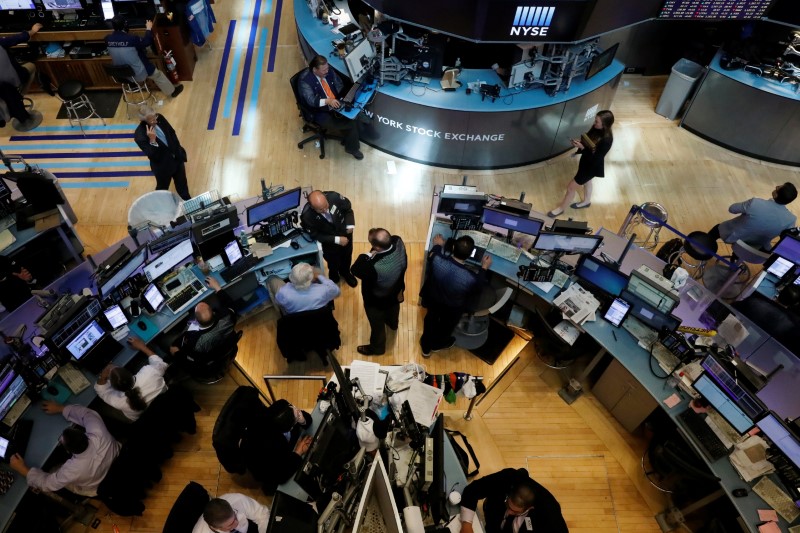By Geoffrey Smith
Investing.com -- The world's largest oil exporters meet to decide production quotas for March. Whether they can live up to them is another matter. Alphabet (NASDAQ:GOOGL) breathes some life back into tech stocks with strong earnings that set a high bar for Facebook (NASDAQ:FB) owner Meta later Wednesday. ADP (NASDAQ:ADP) reports its monthly private payrolls numbers, and the Eurozone's inflation problem is getting worse before it gets better. Here's what you need to know in financial markets on Wednesday, 2nd February.
1. Alphabet smashes expectations
Google-parent Alphabet delivered a much-needed shot-in-the-arm to technology stocks after the close on Tuesday, reporting strong quarterly results which showed sustained high demand for advertising space on its search and YouTube platforms, as well as for its Cloud-hosting services.
Fourth-quarter revenue rose 32% to $75.33 billion, while profit rose by a similar amount. However, revenue growth was the slowest in five quarters, suggesting that the unprecedented pandemic-era boom is fading, while the Cloud business continued to operate at a loss as the company spends heavily on new business.
The results nonetheless set a high bar for Facebook owner Meta when it reports after the close. Alphabet stock was up 10.2% in premarket, making up all of its January losses.
2. OPEC+ to meet; U.S. inventories due
The world’s largest oil exporters meet to set production quotas for March, and the meeting is likely to end in disappointment for those hoping for a faster rise in supply.
Analysts expect the Organization of Petroleum Exporting Countries and allies led by Russia to stick to their regular monthly increase of 400,000 barrels a day – albeit, the group has failed to meet even that target in recent months, leaving its collective output over half a million b/d below where it ought to be. Russia missed its output quota for the second straight month in January, analysis of data published on Tuesday suggests.
OPEC ministers will convene at 7 AM ET (1200 GMT) and take a common position into their meeting with non-OPEC producers at 8 AM ET. They should be finished by the time the U.S. releases weekly inventory numbers at 10:30 AM ET.
Crude futures were flat ahead of the meeting, still close to seven-year highs. U.S. crude futures were at $88.20 a barrel, while Brent was at $89.06 a barrel.
3. Stocks set to open higher; earnings barrage continues
U.S. stock markets are set to open higher later, as Alphabet’s earnings restore a bit of confidence in the outlook for tech – even though the dominant status (and the pricing power) that it commands in its core businesses aren’t something that really applies to most other stocks in the sector.
By 6:20 AM ET, Dow Jones futures were up 36 points, or 0.1%, while S&P 500 futures were up 0.6% and NASDAQ 100 futures were up by a thumping 1.3%.
Other stocks likely to be in focus later include Starbucks (NASDAQ:SBUX), PayPal (NASDAQ:PYPL) and Advanced Micro Devices (NASDAQ:AMD), which all also reported late on Tuesday – the former two disappointing with their guidance and the latter beating expectations. AbbVie (NYSE:ABBV), Thermo Fisher (NYSE:TMO), DR Horton (NYSE:DHI) and Humana (NYSE:HUM) all report later, along with Boston Scientific (NYSE:BSX), Waste Management (NYSE:WM) and Emerson (NYSE:EMR). Qualcomm (NASDAQ:QCOM) and T-Mobile lead the roster of late updates.
4. Eurozone inflation surprises with new record high
Inflation in the Eurozone rose surprisingly to a new all-time record high of 5.1%, as skyrocketing energy prices prevented the expected drop from materializing.
Money markets reacted by bringing forward their expectations of the European Central Bank’s first interest rate hike in 11 years to July, something that is still firmly at odds with ECB guidance, while the euro rose to its highest in a week at $1.1312. The numbers follow data earlier this week showing that the Eurozone unemployment rate is also at a record low of 7.0%.
The benchmark 10-Year German bond yield rose to its highest since May 2019 on the news, at 0.05%.
5. ADP payrolls seen hit by Omicron
The U.S. labour market is in focus later, with ADP’s monthly assessment of private payrolls in January.
It may be harder than usual to distinguish noise from signal in this week’s data: the White House on Tuesday dropped a heavy hint that it expects a very weak number for payroll growth on Friday due to the impact of the wave of Omicron-variant Covid-19 during the month.
Analysts expect the ADP number to come in at 207,000, down from 807,000 in December.
Despite that, other data points continue to suggest the labour market remains tight. U.S. job openings rose again in January to close to their all-time high, according to the monthly JOLTS survey released on Tuesday.
